The Wild Life Farm
This small farm within the 44 aims to regenerate the land by growing trees, food and flowers with neighbours and friends.
“Tell me, what is it you plan to do with your one wild and precious life?”
– Mary Oliver

The Neighbourhood Garden
We grow food and flowers and will be selling from the farm in spring of 2024. Our farmstand will be mobile, so check our socials to find out where we will be. If you are interested in flowers for an event in the summer of 2024, please contact us.
Raw alpaca fibre
We sell raw baby alpaca fibre from our alpaca’s first and second year springtime shears.
When compared to merino wool, alpaca is softer, stronger, warmer, and retains less water. It is hypoallergenic and unlike sheep’s wool, alpaca fleece does not contain lanolin. It is odor resistant.
If interested in purchasing raw fibre, please contact us
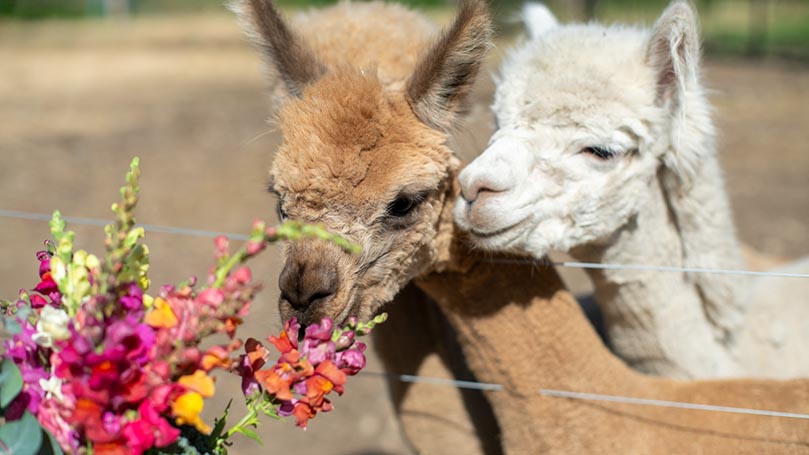
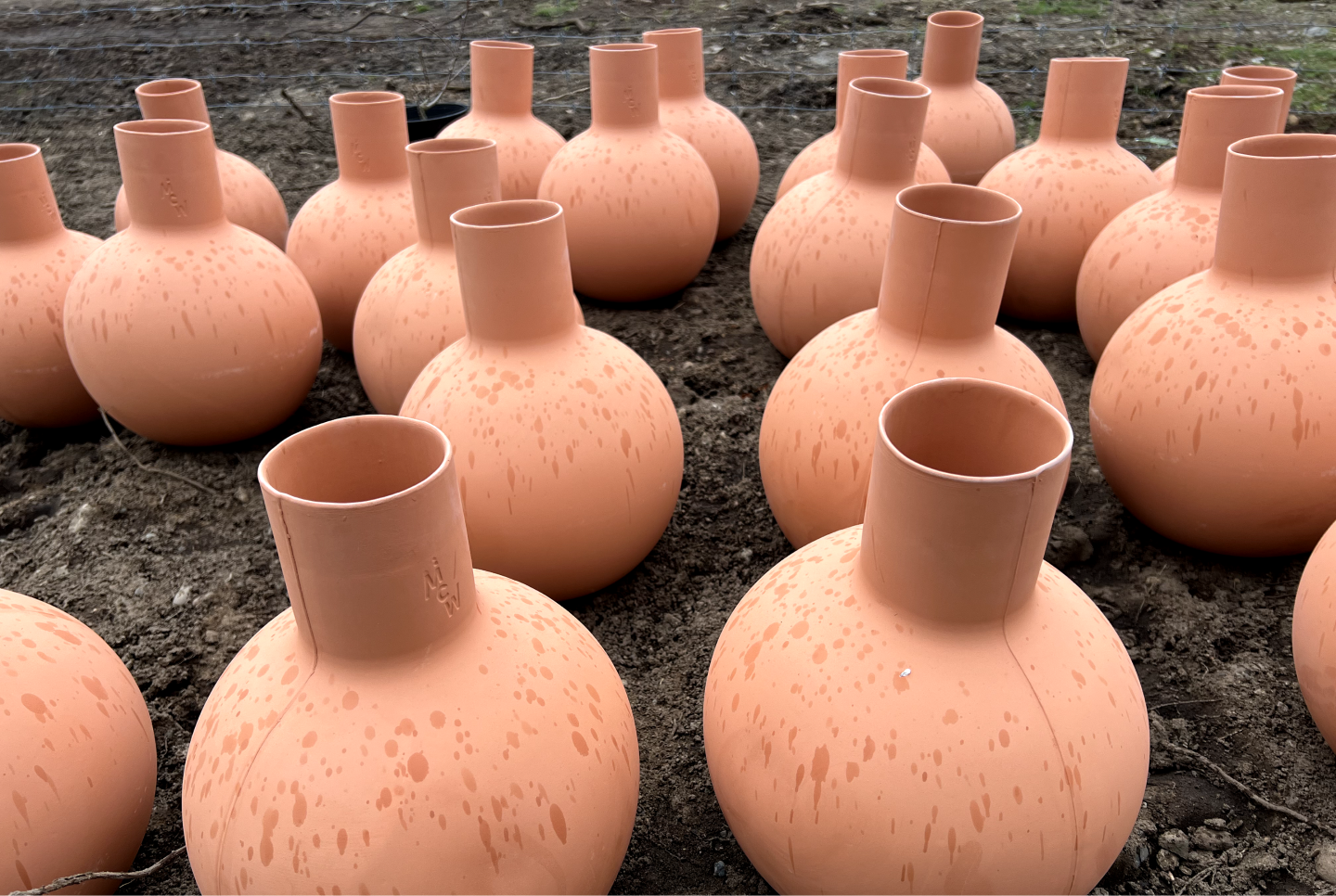
How we water
Ollas
The Wild Life Farm is perched on a ridge in a drought prone area of the islands. It is not a natural place for a verdant farm making water our most precious resource. We harvest rainwater and we must conserve every last drop.
In order to irrigate our farm most efficiently we employ the use of Ollas, an ancient technique of farm irrigation. They are basketball-sized vessels made of clay buried down to their necks in our raised beds. Dry soil pulls moisture through the unglazed thin walls only as needed. Because they only expel water when the soil is dry and does it directly to the roots under the surface, they save 75% of water compared to drip irrigation.
Thank you to Mayne Island Clay works for these beautiful Ollas. They are not easy to find, and we are fortunate to have a local maker. We highly recommend checking them out.
How we fertilize
Alpaca poo
Here on the farm, we fertilize and mulch our gardens with alpaca manure. IT. IS. AMAZING.
Alpaca poop is one of the best-kept secrets in fertilizer and can improve your garden soil. With beneficial microorganisms and the right balance of nitrogen, phosphorus, potassium, and micronutrients, alpaca compost has the highest N-P-K of any natural fertilizer.
- Used as mulch, it helps retain soil moisture
- Nutrient profile approx 1.7-.69-1.2
- Does not burn, can be put directly on soil
- Fresh poo is very low in odor and aged manure is virtually odor free
- Can be sowed directly, composted, or created into “tea” to spray on plants
If you are interested in Alpaca poo, please contact us
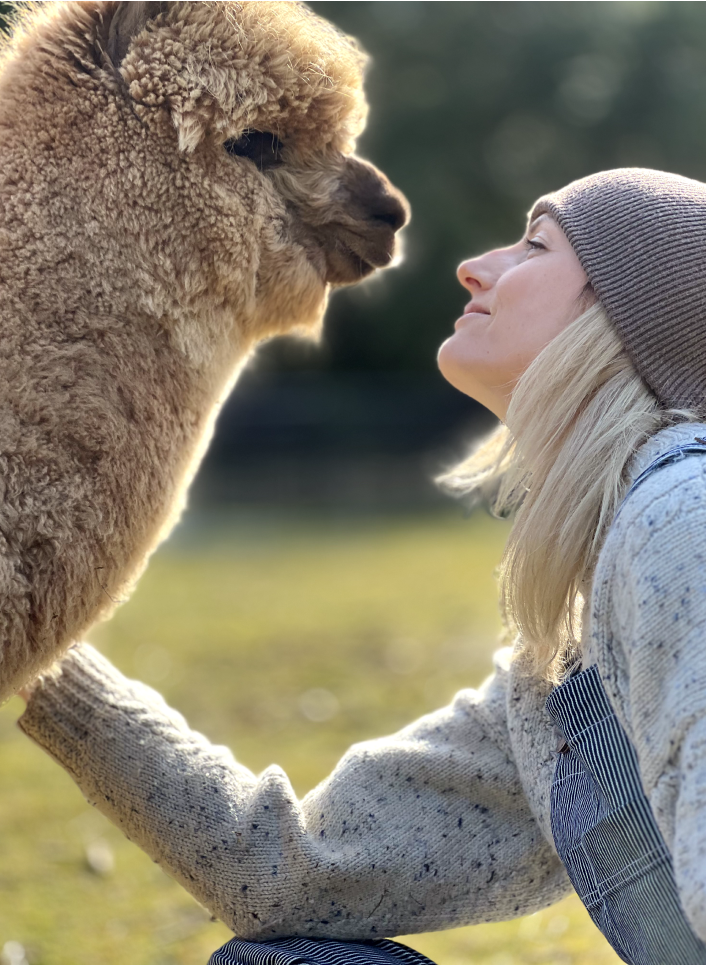
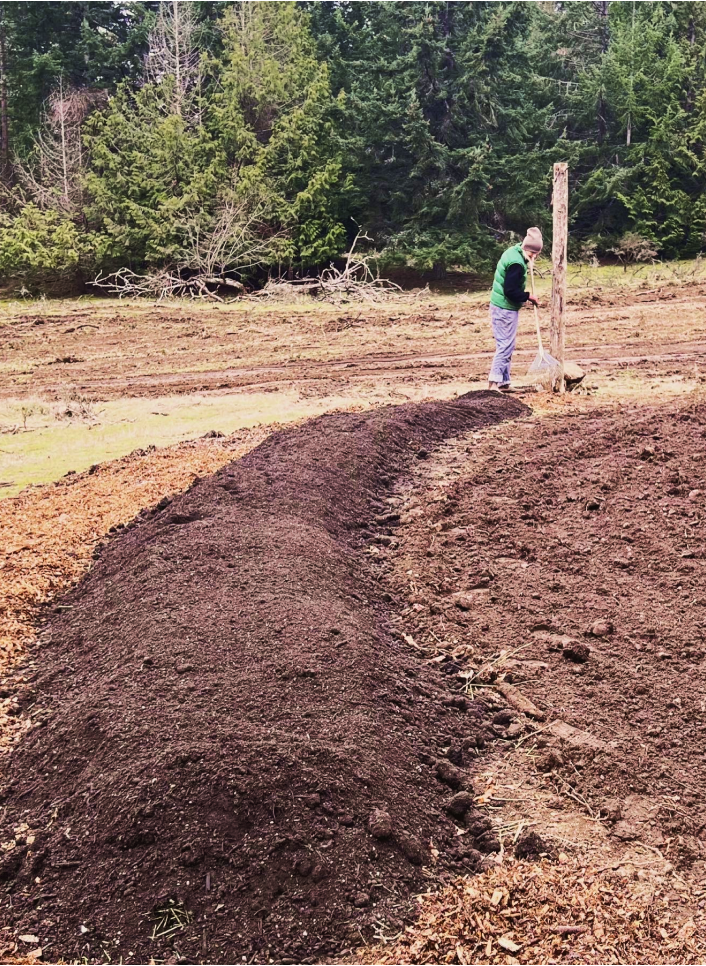
Meet the boys
Our alpacas help close the loop within this little farm ecosystem. They eat invasive species and their poo fertilizes our crops, and most of all they make us laugh. They are super weirdos, sometimes grumpy, sometimes sweet and always want a treat.

William
William is our sweetest boy. This spring, we sheared him a mullet, but it doesnt really suit him. William is more a tweed jacket and pocket watch kind of guy. Adam originally named him KMX-R4
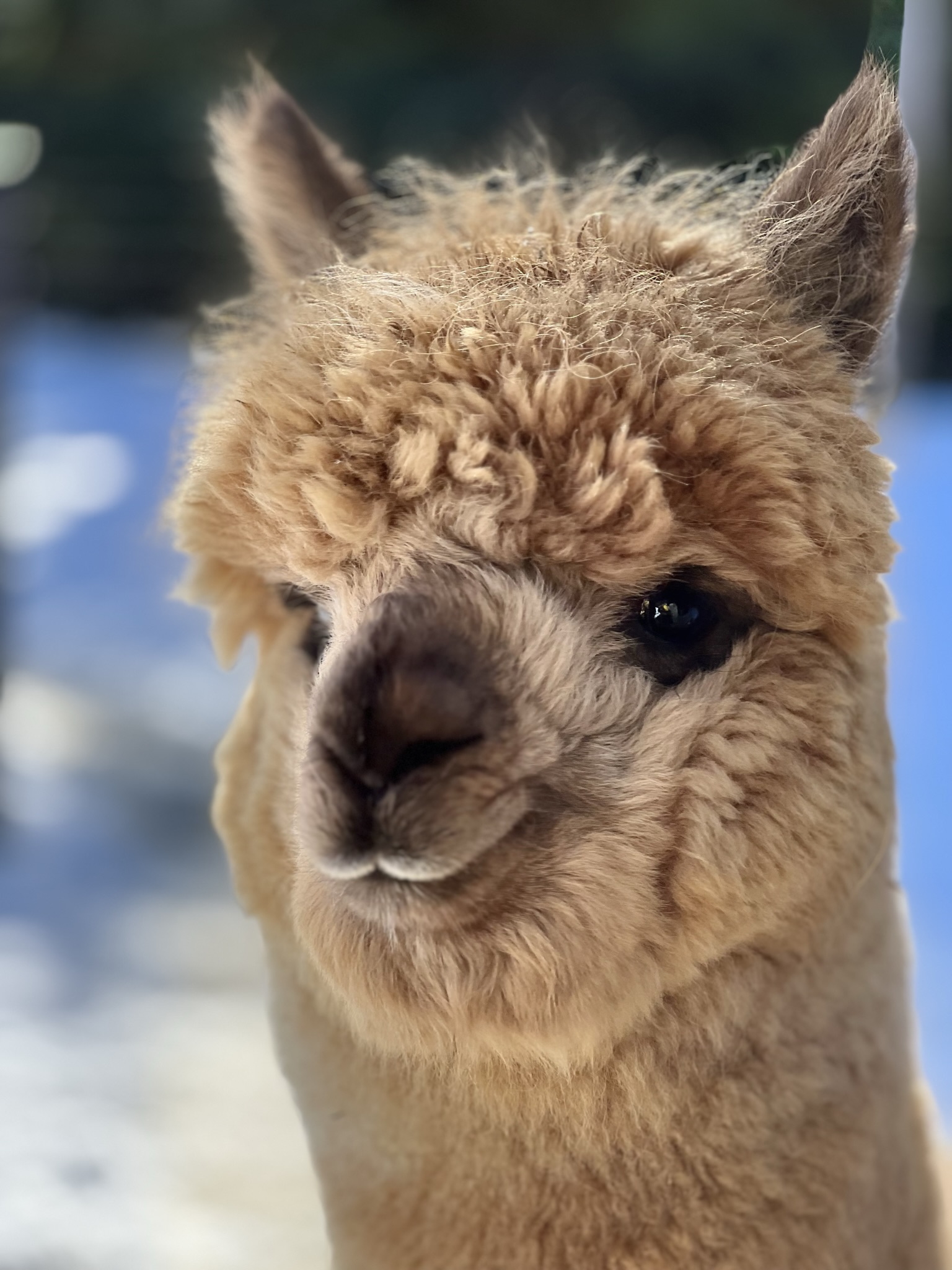
Georgie
Georgie is our alpha. Very curious, hence the name. He really, really loves us, and then on other days, I can tell he is plotting where to hide our bodies.
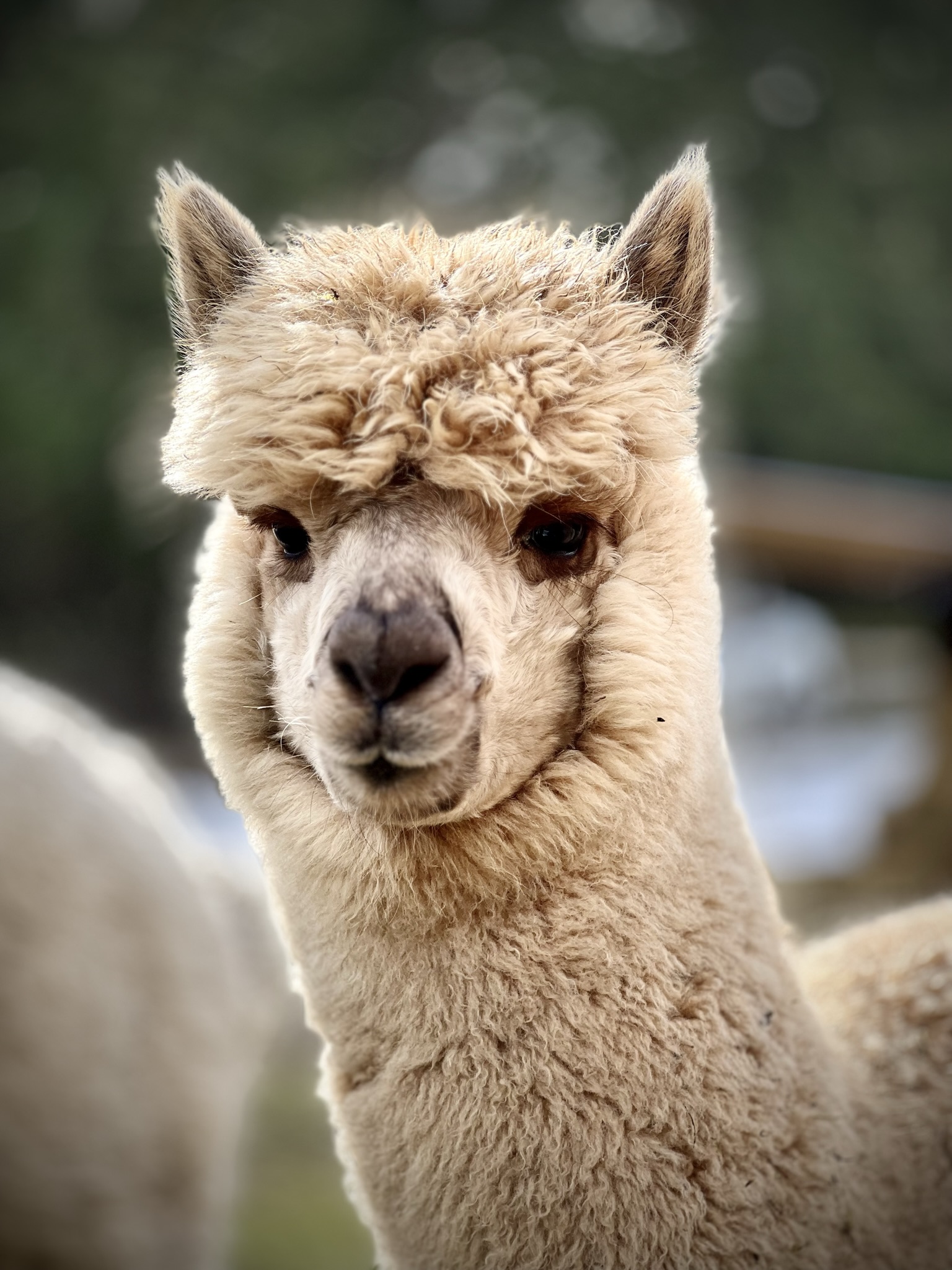
Felix
Felix is the most weird of all of the weirdos. He often goes “offline”. Perhaps he is stuck in a rip in the space/time continuum. He may be from another time, perhaps 2078

